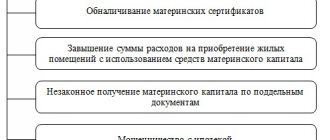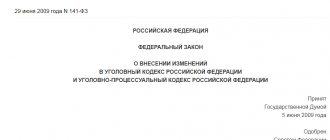Pardon is a very individual phenomenon. It can be taken against all convicted persons, regardless of their behavior in places of deprivation of liberty.
The convicted person, his mother, the public, or the president himself can ask for a pardon.
Depending on the person of the petitioner, corresponding types of petitions are distinguished. The head of state always had the opportunity to pardon a person who crossed the boundaries of what was permitted. A citizen’s unlawful acts can be forgiven if his personal merits or importance to the state outweigh the consequences of his crime.
Pardoning a convicted person may be based on the following reasons:
- the applicant has significant health problems;
- convicts have a record of service to the state;
- certain facts were not taken into account during the investigation;
- A person significant to the state or the public stands up for the convicted person.
If the petition for clemency is granted, the person may be released from the punishment imposed on him in full or in part.
Pardon: when
There are currently a large number of people in prison, many of whom have admitted their guilt, repented of their actions and would like to start a new life. At the same time, a petition for pardon can be sent to the President in other cases:
- serious illness of the convicted person;
- presence of state merits;
- omission of important facts during the investigation;
- intercession of public organizations or government officials.
Aggravating factors
In addition to the reasons for possible acquittal, there are factors that aggravate the prisoner's situation. In the presence of such moments, the fact of pardon, most likely, will not be able to take place. This list includes:
- committing an intentional crime during the probationary period of a suspended sentence;
- constant violations of prison regulations;
- availability of releases from prison on parole or amnesty;
- presence of acts of pardon in the past;
- replacing current responsibility with a softer form.
Classification
Pardons can be classified based on their consequences:
- the person is released from the assigned isolation and his term of imprisonment is terminated;
- the time spent in custody is reduced;
- a more lenient type of liability is applied to the guilty person;
- cancellation of a criminal record from a previous period.
Sometimes acts of pardon are distributed based on the subject initiating the application of this type of forgiveness:
- presidential;
- public;
- maternal;
- personal.
Other
Often, convicted citizens themselves or their defenders in the case apply for pardon, but sometimes the initiators are other persons.
Reference! In some cases, society, a specific community (a certain organization, including an informal one), wants to protect a guilty person when it learns about the excessively harsh punishment chosen by the court.
Here, in addition to the petition from the convicted person, you need to collect a certain package of documents to transfer it to the pardon commission. First of all, this is a petition for pardon issued by an organization or group of activists.
Maternal petition for clemency
This type of application is highlighted separately because, as a rule, a request for pardon from the mother always carries more weight. It is good if it is supported by the request of the convicted person himself and his convincing repentance.
The mother's request for clemency is considered a priority when considered by a special Commission, although it does not provide any guarantees, especially if certain principles are not observed.
general information
Pardon has always been a very individual phenomenon. Pardon is an act issued by the head of state (i.e., the supreme representative of the government).
The content of a pardon may in one case free the convicted person from the punishment imposed by the court completely, and in another only partially.
Medieval rulers also did not hesitate to apply such law in relation to their decisions.
The institution of pardon is approved by religion, which in those days had significant weight.
Based on feelings of mercy and forgiveness, orders are given and the convicted escape punishment.
This is how the principle of humanity was laid down and human rights and freedoms began to be respected in the penal law of the Middle Ages.
Law
The legislative framework of the Russian Federation is huge and includes many laws and regulations.
If we talk about pardon taking into account the hierarchy of legal acts, then the fundamental provisions are contained in the Constitution of the Russian Federation, the Criminal Executive Code of the Russian Federation and Article 85 of the Criminal Code of the Russian Federation.
All these acts cover the entire range of provisions on pardon and are specified from the point of view of the legislator.
In addition to these legal blocks, there are Decrees of the President of the Russian Federation concerning issues of pardon.
Thus, the Constitution of the Russian Federation says that the highest value is the rights and freedoms of man and citizen.
In addition, every convicted person has every right to apply for a pardon or change the sentence towards mitigation.
Also, the Constitution states that the President of the Russian Federation has the right to pardon convicts.
And although there are many gaps in the pardon legislation, in recent years, as statistics indicate, prisoners are increasingly beginning to resort to such a right.
Petition for clemency: sample
To correctly complete the application, it is necessary to take into account generally accepted wording. The answer to the question of how to write a pardon for a convicted person can be found by looking at his example. However, there are key writing points:
- the text must be handwritten;
- it is necessary to include information about the addressee (President of the Russian Federation) and the applicant;
- the introductory part should consist of a brief narrative about the personality of the person serving the sentence, indicating the reasons, date and period of imprisonment;
- the main part contains the rationale for making a positive decision;
- At the end the date and signature of the applicant are placed.
Application design
In addition to the letter itself, you must add a list of documents attached to it. These include (if available) the following:
- copies of the verdict and decisions of subsequent authorities in relation to it;
- notification of the commencement of the sentence;
- medical document confirming the presence of diseases;
- certificate of compensation for material damage;
- biography of the convicted person and information about family composition;
- history of filing requests for clemency;
- information about previously applied provisions to the convicted person (amnesty, parole, etc.)
- characteristics of behavior during imprisonment.
What documents are needed
A petition drawn up by a prisoner in places of detention is sent to the head of the institution. He must accept this petition and register it specially. magazine.
A package of documents is prepared separately, consisting of:
- messages about the date when the court verdict became effective;
- honey. certificates (doctor's reports) reflecting information about the health of the compiler;
- information on whether the financial claims of the injured party were satisfied (whether material and moral damage was compensated);
- a questionnaire reflecting information about the candidate for pardon;
- extracts indicating whether there are previously submitted petitions;
- information about the use of amnesty or parole in relation to a person;
- characteristics submitted by the administration, which should reflect information about how the prisoner behaves, whether he participates in the activities of the institution, how he relates to work and training, whether there are penalties (incentives);
- the petition for pardon itself.
To prepare these documents, the institution’s management needs up to 20 days. Sometimes twice as much.
On a note! The severity of the crime does not affect the time it takes to prepare documentation.
How is it viewed?
A petition for clemency to the President, a sample of which is first sent to a special Commission on such issues, undergoes a certain control.
In each subject of the Russian Federation, this structure is represented by a separate body that considers such applications. In this case, applications can be sent more than once, the main thing is that the interval between them is at least 6 months.
Terms of consideration
A letter of pardon to the President does not immediately reach the administration of the head of state, but goes through several stages. Once the petition has been submitted to the Special Commission, no more than a month should pass to make a decision on the advisability of such a document.
If approved, the letter can remain in the administration of the head of the region for another 15 days and only after a positive response, it is sent further to the highest authority. In case of refusal, the convicted person will receive a written response indicating the reasons.
Responsibilities of a person released on parole
It seems that this is the long-awaited freedom and you can start living. But that's not true.
The court may order you to comply with certain obligations upon parole. Restrictive measures are established for the unserved part of the sentence - the probationary period.
You will be prohibited from:
- change your place of residence, work or educational institution without written warning from the supervisory authority;
- visit casinos, night restaurants, bars and other entertainment venues;
- use of drugs or other psychotropic substances;
- communicate with former partners in crime or otherwise maintain contact with the criminal world.
The court may cancel established duties or assign new ones. If you have fulfilled all the requirements during the probationary period, then the sentence is fully served.
Grounds for deprivation of parental rights
Article 69 of the Family Code establishes an exhaustive list of grounds that allow you to file a claim for deprivation of the parental rights of a mother or father. To do this, it is established that the parents (or one of them):
- evade the fulfillment of parental responsibilities, including malicious evasion of child support payments;
- refuse, without good reason, to take their child from a maternity hospital (ward) or from another medical, educational organization, social service organization or similar institutions;
- abuse parental rights;
- children are cruelly treated, including physical or mental violence against them, and attacks on their sexual integrity;
- suffer from chronic alcoholism or drug addiction;
- committed an intentional crime against the life or health of their children, the other parent of the children, a spouse, including a non-parent of the children, or against the life or health of another family member.
IMPORTANT!
The presence of debt or a small amount of child support payments is not a sufficient argument for depriving parental rights. This fact is considered solely in connection with other manifestations of the guilty behavior of the parent (or both). Based only on this basis, it is impossible to file an application for deprivation of the parental rights of a father or mother (review approved by the Presidium of the Supreme Court of the Russian Federation on July 20, 2011).
There are situations when parents do not fulfill their responsibilities due to difficult circumstances and reasons beyond their control. This is, for example, a mental disorder or other chronic illness. The court has the right to make a decision on restrictions if there is a danger to the child, but will reject the application for the deprivation of rights. Law enforcement practice takes into account the specifics of each case (paragraphs 16-17 of the resolution of the plenum of the Supreme Court of the Russian Federation No. 44).
Presidential Decree
If a positive decision is made on the petition, the act of pardon will be drawn up in the form of a Decree, which reflects the personal data of the person and what the mercy consists of. At the same time, the details of the reasons for which the petition was granted are usually not reflected in the Decree:
Decree of the President of the Russian Federation
Guided by Art. 85 of the Criminal Code of the Russian Federation, based on the principle of humanity, I decide to pardon Andrey Nikolaevich Petrov, born on December 12, 1955, who was sentenced by the Pyatigorsk City Court to 13 years of imprisonment in a maximum security correctional colony, releasing him from further serving his sentence.
The decree comes into force from the date of its signing.
Signature of the President, date, number, Moscow, Kremlin.
The decree is sent to several addressees:
- for execution to the administration of the correctional institution,
- to the territorial Office of the Federal Penitentiary Service of the region,
- to the regional governor (Head of the municipality).
The very fact of the release of a convicted person or partial mitigation of his situation does not give rise to his right to rehabilitation. At the same time, a person is not deprived of the right to appeal a sentence that has long since entered into legal force based on newly discovered circumstances, through the procedure of cassation or supervision. In the event that the verdict has decided to compensate the harm to the victim, the Presidential Decree on pardon does not relieve the convicted person from such an obligation.










